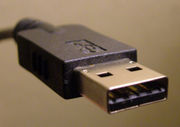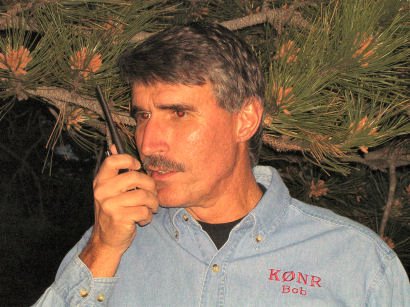USB on Ham Radio Gear?
 One of the really well-done and useful technologies available today is the Universal Serial Bus (USB). If you don't know what this is, you have been living under a rock or simply refuse to own a computer. The first revision of the USB spec (USB 1.0) was released in January of 1996. The standard has been revised and improved over time and USB ports are now standard on virtually all computers today.
One of the really well-done and useful technologies available today is the Universal Serial Bus (USB). If you don't know what this is, you have been living under a rock or simply refuse to own a computer. The first revision of the USB spec (USB 1.0) was released in January of 1996. The standard has been revised and improved over time and USB ports are now standard on virtually all computers today.USB has become the preferred and standard method for connecting electronic devices to a computer. Yes, there are some applications that might require a different connection such as IEEE-1334 (AKA Firewire), but for the most part the world has embraced USB.
In my collection of electronic stuff, I have quite a few devices that use USB. Let's see. The computer mice that I use with notebook computers all use USB. My Garmin GPS, my digital camera, my Apple iPod, my external hard disk and my keychain Flash memory drive all have USB. The really cool thing is that I can just plug these devices in and they pretty much work. Sometimes the first time you use a device, you may have to load the right driver. On subsequent connections, it just works.
Then there is my ham radio equipment: all stuck in the archaic world of RS-232. You remember RS-232....it's that 9-pin D connector that might still be on your computer. My newer computers don't even have it anymore but some of my other ones do...which is the problem. If a manufacturer wants to be backward compatible with older computers (like the ones that many of us hams still have lurking in the basement), you need to support the "old" serial port.
If you have a newer computer without an RS-232 port, you can't connect it to brand new ham equipment. Now, the good news is that there are adapters that convert the new USB port to connect to older RS-232 equipment. See an example of one here. My experience is that these converters really do work but they require some setup to get it right. Instead of the device self-identifying (like a USB device would), you have to specify the right COM port, the right serial speed, the right parity bits and so forth. Why did we ever have to set parity? Why couldn't it just always default to a common setting?
USB is also very fast, with USB 2.0 running at 480 Mbit/s, compared to maybe 115kbit/s for RS-232. USB also supports hubs and addressing of multiple devices connected to one USB port. RS-232 was pretty much a "hook up one thing at a time" bus.
The point here is that it is time to move on. Come on, ham radio manufacturers, forget the old RS-232 ports and give us USB. Bring ham gear into the 21st century.
73, Bob K0NR





